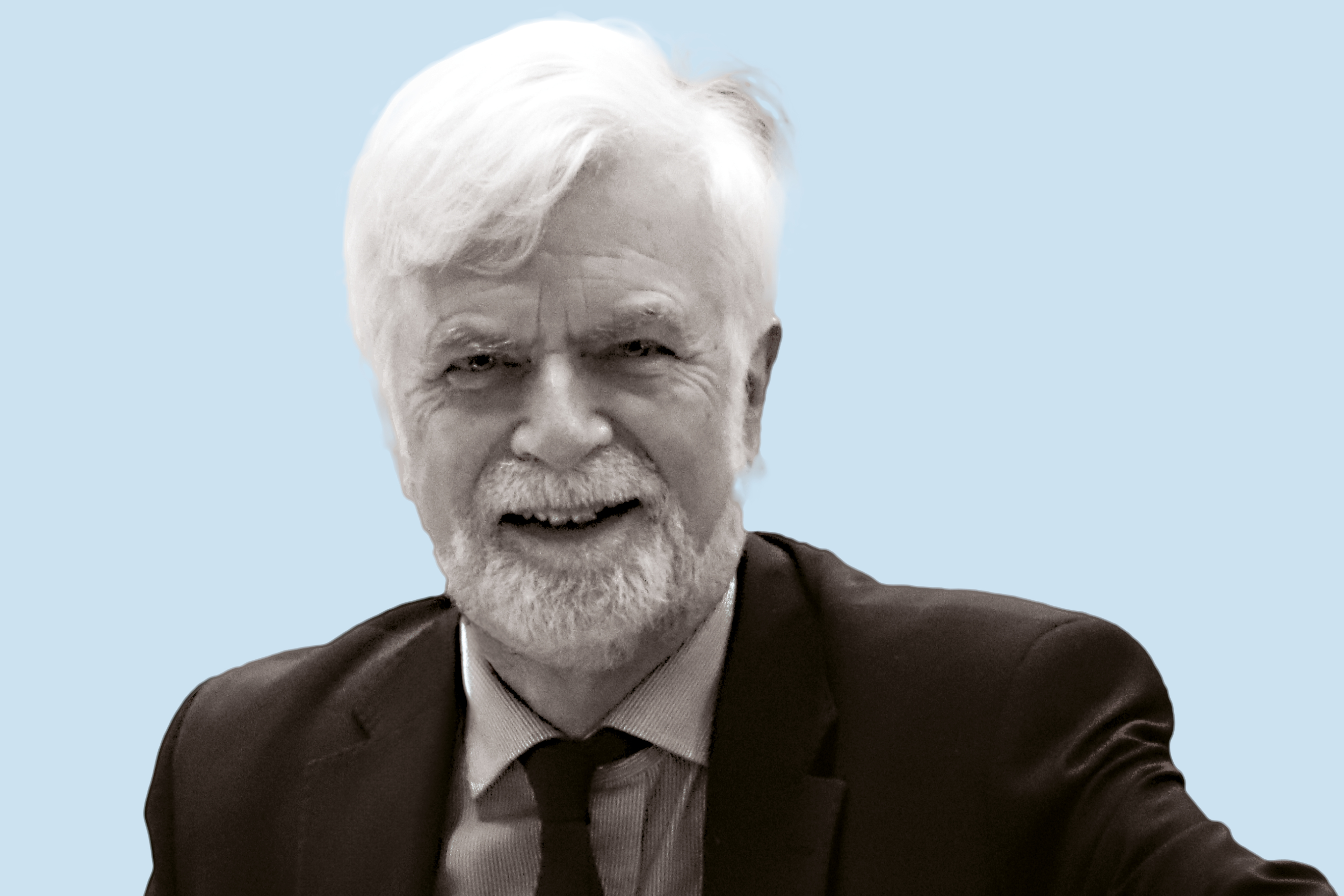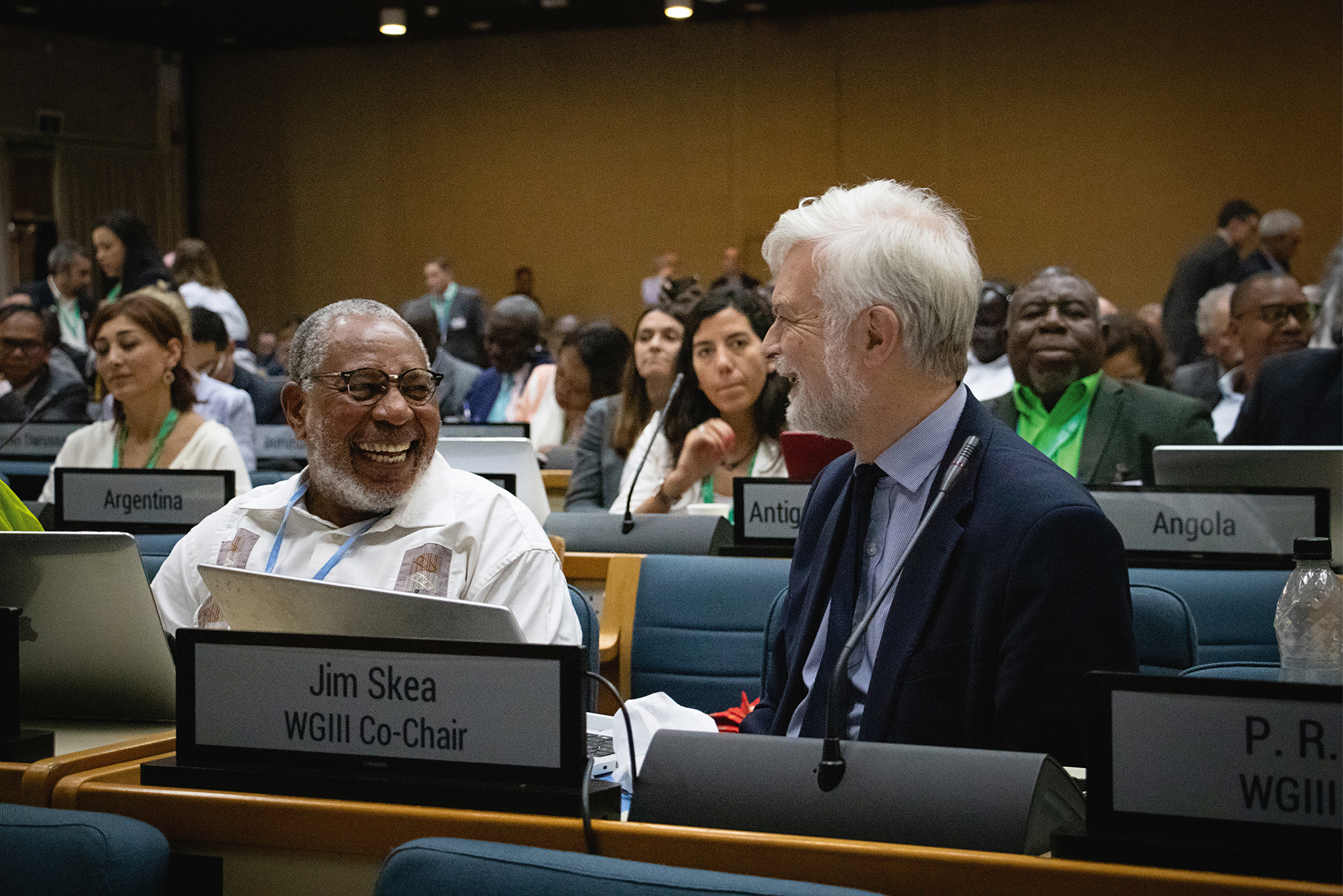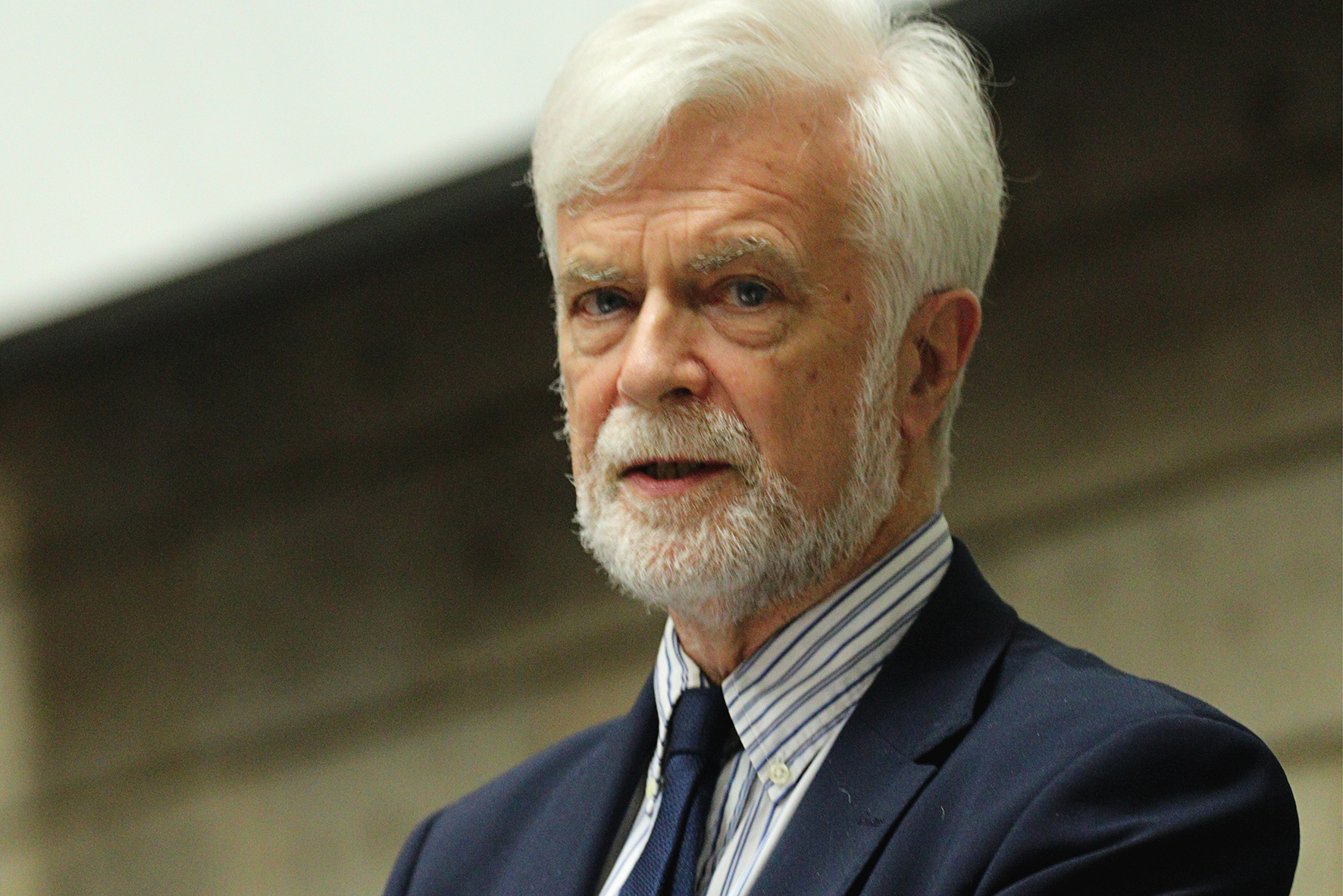Lorem ipsum dolor sit amet, consectetur adipiscing elit. Curabitur eleifend tortor nec augue pretium


Despite having been described as “the most important scientist no one’s ever heard of”, Sir Jim Skea’s election to chair of the Intergovernmental Panel on Climate Change (IPCC) in 2023 saw him catapulted into one of the most prestigious environmental jobs on the planet.
The renowned Scottish academic – who is also emeritus professor at Imperial College London – has received numerous awards over the more than 40 years he has worked in climate science research, making him one of the world’s leading authorities on the subject.
Now he faces his greatest challenge: coordinating experts in science, economics, engineering and social science to determine the best way to tackle the climate crisis – and then convincing governments to agree on the best way forward.
“Climate change is an existential threat to our planet,” he said after being chosen to lead the IPCC through its seventh assessment cycle. “We have the tools; now we have to put them to work.”
Although this dominates his work life, it wasn’t always that way. “I didn’t imagine even five years ago that I would be chair of the IPCC,” he says. “My background was in energy research, and I became the UK’s policy expert on acid rain in the late 1980s, early 1990s, so, from there, it was an easy slide into climate change.
“When I look back, I think I probably would have slid towards a role at the science-policy interface, but the precise position that I could have occupied, there is a lot of serendipity about it.”
Skea graduated from the University of Edinburgh with a BSc in mathematical physics in 1975, and credits his Scottish roots with helping set him on the path towards leading the world’s most influential climate change body.
“Scottish educationalists would be very proud of the fact that they really know how to instil rigorous thinking and mathematics, and that went right back to my primary school. And I have had a thorough education on how to parse sentences, which can be quite helpful when you’re negotiating the final text of the IPCC.”
This is Skea’s third consecutive cycle at the UN body, having previously been co-chair of the Working Group III on climate change mitigation, and co-leading its seminal Special Report, Global Warming of 1.5°C.
“That report was a real gamechanger,” he says. “Net zero came on the agenda in the UK; we have a government department with net zero in the title, and most of the world’s emissions are now covered by quite aspirational net-zero targets for the mid or late 21st century.
“I have a fairly clear idea of what I think needs to be done for the IPCC to maintain its influence.”
The challenge is convincing governments to back its conclusions, because influence comes from political support, which can also lead to accusations that the science has been watered down.

“The key thing is that the I in IPCC stands for intergovernmental, so, in a sense, governments own it,” says Skea. “When we produce a report in summary for policymakers, every word and every sentence is agreed by 195 governments, and that is a major achievement.
“But the governments elect scientific leadership, which is 34 people, of whom the chair is one, and then when we actually get to writing the reports, there can be 250 authors who are nominated by the governments, and then selected by the elected scientific leadership, so it’s quite a complicated process.”
The IPCC has three working groups: one that looks at the physical science, one that covers impacts and adaptation, and one that looks at mitigation, and finding consensus within each group comes with differing levels of difficulty.
“On physical science, you can’t really argue with it, and it’s a bit easier to get agreement, but I don’t think it has got any easier in terms of Working Groups II and III,” Skea says.
“Even if you acknowledge that climate change is happening here and now – not decades in the future – there is still the challenge of what do you do about it? How much adaptation and how much mitigation do you do? What particular measures and approaches do you take?
“So I don’t think that has got any easier. In fact, it’s probably got more intense, because the urgency of doing something is here and now, and there are very intense debates about what the correct path forward is.”
Last year’s COP29 summit demonstrated the disparate views of nations on how to implement the Paris Agreement, with many left feeling that the conference was another missed opportunity.
The New Collective Quantified Goal agreed for £300bn in climate finance from developed countries for developing ones by 2035 fell far short of the $1.3trn that economists say is needed, while countries such as Saudi Arabia were accused of blocking progress at the talks.
“We’ve got three goals in the Paris Agreement: the long-term temperature goal, fostering resilience and avoiding vulnerability, and financial flows between developed and developing countries,” Skea says. “Diplomatically and politically, these three goals are co-equal – you cannot solve one without solving the other – and obviously many developing countries will bring the issue of development to the table.
“In more developed countries, there may be more focus on the pure mitigation agenda. I’m not calling any country obstructive, but people bring different perspectives to the meeting, and that is the art of getting consensus.”
Poverty eradication and sustainable development provide the context through which climate action is being pursued, and gaining perspectives from social scientists is an ongoing challenge for the IPCC. “If you’re in sociology or anthropology, climate change is a bit on the periphery of the discipline, and it can be harder to pull people in,” says Skea. “We have tried to get a wider range of disciplines involved, but it’s something we need to pay constant attention to.”
There has been much talk around whether scientists have done enough to communicate their findings effectively with governments and the general public, with some claiming that they are not easily accessible. However, Skea says that simplifying the language can lead to further disagreements among countries.

“Governments spent a lot of time negotiating that precise text, and if they think this has been translated or simplified or the nuance has been lost,
it can cause us difficulties.”
On communicating with non-government or non-scientific audiences, he says: “The media and the social media outreach from IPCC is pretty successful at the moment. When an IPCC report comes out, it probably has more quantitative impact than any other UN event. That is a real achievement.”
However, it’s impossible to deny that their reports have been used by climate sceptics to argue that proposed policies infringe on personal freedoms and are too costly; pitting scientists against ‘ordinary people’ in the culture wars.
“We were aware of the challenges right at the beginning, which is why every time the word ‘diet’ appeared in the report, it was in the context of the phrase dietary choice – we are only telling you the consequences of the choices you make,” Skea explains. “We are not making a recommendation. It’s an ‘if then’ statement. If people were to eat in this way, these would be the consequences, and we were very careful to communicate it that way.”
A couple of years ago, Skea was quoted as saying: “I honestly don’t wake up in the morning with any great sense of existential angst about climate change. It’s more: what do we need to do?”
His career is a testament to that outlook – he was a founding member of the UK’s Climate Change Committee and has spent decades searching for solutions to the challenges we face.
“The messages that have come out about climate change are doom-laden, and the risk is that creates a sense of hopelessness and paralysis,” he says.
“The Working Group II and III reports on adaptation and mitigation point out that the future’s in our hands. We have agency over this. There are choices we can make, technologies, techniques, processes, and we have actually seen regulations and policy interventions that can bring these forward.”
For sustainability professionals feeling that they have not yet made the changes they wish to see, he adds: “Don’t get anxious if you’ve not done that big job straightaway; there are other ways of getting into it, and don’t forget serendipity and slipping into things.
“Strategic opportunism is perhaps the best way of characterising it, but we can all make a difference; not just in terms of what you consume, it’s how you vote and how you participate in civic society, so be active.”
To listen to IEMA’s Sustainable Matters podcast with Jim Skea, visit www.bit.ly/Jim-Skea-podcast
Born: 1953, Dundee, Scotland
Education: University of Edinburgh, graduated with a BSc in Mathematical Physics with first class honours in 1975. Gained a PhD in energy research in 1978 at Clare College, Cambridge
1981-1983: Research associate, later visiting assistant professor, Department of Engineering and Public Policy at Carnegie Mellon University, Pittsburgh, Pennsylvania
1998-2004: Director, Policy Studies Institute
2009-present: Professor of sustainable energy, Imperial College London, Centre for Environmental Policy
2004: Awarded OBE for services to sustainable transport
2008: Elected vice-chair of IPCC’s Working Group III
2013: Awarded CBE for services to sustainable energy
2015: Elected co-chair of IPCC’s Working Group III
2018-2022: Co-author of the IPCC’s Global Warming of 1.5°C and Climate Change and Land special reports, and its Mitigation of Climate Change report
2023: Elected IPCC chair
2024: Honoured with Knighthood